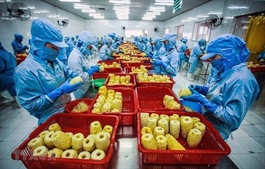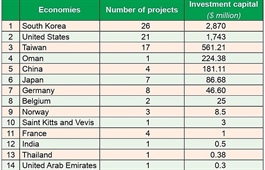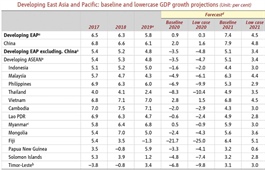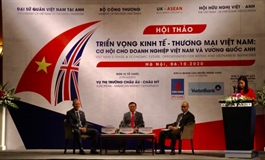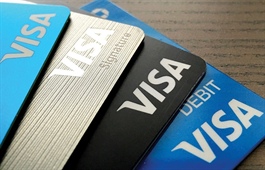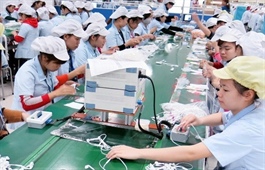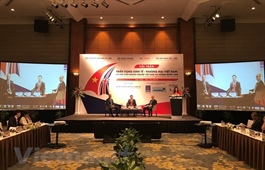Vietnamese, UK firms look to bilateral FTA post-Brexit
Vietnamese, UK firms look to bilateral FTA post-Brexit
An online dialogue on policies and markets held on October 6 offered Vietnamese and UK enterprises an insight into the opportunities and challenges in trade and investment ties between the two nations following the UK’s withdrawal from the EU.
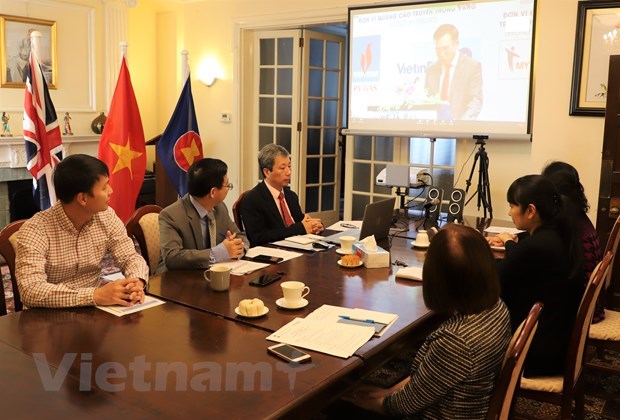
At the event (Photo: VNA)
|
An online dialogue on policies and markets held on October 6 offered Vietnamese and UK enterprises an insight into the opportunities and challenges in trade and investment ties between the two nations following the UK’s withdrawal from the EU.
Vietnamese Ambassador to the UK Tran Ngoc An told the gathering that not only are UK firms interested in the Vietnamese market but Vietnamese firms are also keen on boosting exports to the UK, primarily electronics, farm produce, and aquatic products.
Vietnamese exporters now enjoy benefits under the Generalised System of Preferences and the EU-Vietnam Free Trade Agreement (EVFTA). Post-Brexit incentives starting from December 31, 2020, however, depend on the outcomes of negotiations over an FTA between Vietnam and the UK.
The EVFTA, which took effect on August 1, applies to trade between Vietnam and the UK to later this year, when the UK ends the Brexit transition period.
The Vietnamese and UK Governments want to have an FTA next year with low or zero taxes on almost all goods, he said.
Commenting on the prospects for Vietnam-UK trade, Vietnamese Commercial Counsellor in the UK Nguyen Canh Cuong said that, in the last three years, Vietnam has annually earned nearly 6 billion USD from the UK while spending nearly the same on imports.
There remains huge room to move for Vietnamese goods in the UK, as they account for just 1 percent of the UK’s total imports of around 700 billion USD.
The prospects for bilateral trade ties, he said, rely on Vietnamese firms’ competitiveness and the two Governments’ efforts to reach a bilateral FTA on the basis of the EVFTA.
If a bilateral FTA is reached, Vietnamese goods would gain a competitive edge over those from China, India, Thailand, Malaysia, Indonesia, the Philippines, and Myanmar, which are less likely to sign a deal with the UK in the immediate future. Moreover, not many UK goods compete directly with equivalents made in Vietnam.
Instead of inheriting the EU-Vietnam Investment Protection Agreement, the UK wants to continue with the Vietnam - UK Investment Protection Agreement 2020, which will last until August 2022.
Without an FTA post-Brexit, Vietnam-EU trade ties will be adjusted in accordance with multilateral commitments in the WTO. Vietnamese exports to the UK will decline due to competition with 32 countries and economic alliances having FTAs with the UK.
Vietnam’s exports to the UK fell nearly 20 percent in the first half year-on-year but rose 14 percent month-on-month in August thanks to the EVFTA’s tax preferences.
Cuong said Vietnamese shipments to the UK are forecast to continue recovering between now and the end of the year. The two countries’ firms expect a bilateral FTA will be reached.





